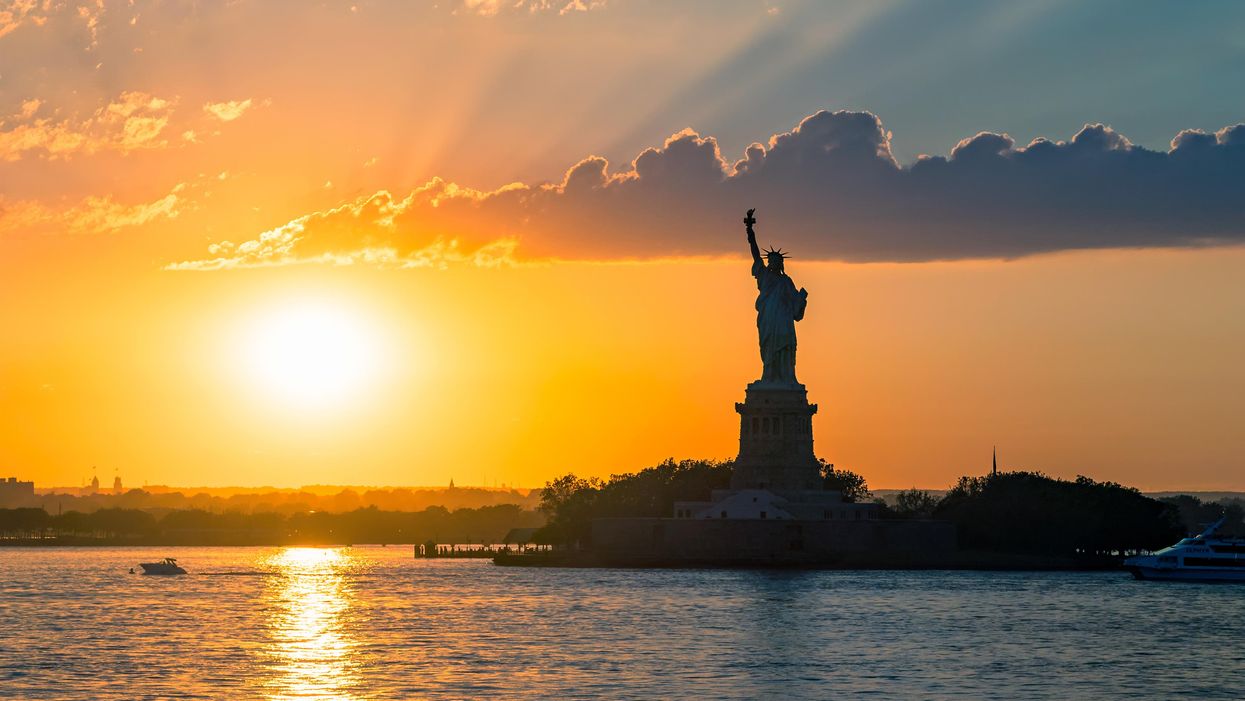Saxena is a research associate at RepresentWomen and a master of public policy candidate at Georgetown University. Goral is the digital communications manager for RepresentWomen.
The American Immigration Council reported that roughly 44.7 million first-generation Americans lived in the United States earlier this year. Within this population, there were approximately 2 million more women than men. Despite making up about 14 percent of the U.S. population, first-gen Americans, specifically first-gen women, are hardly represented as a community within our political bodies.
Did you know that the first foreign-born woman was not elected to Congress until 1989? This is an intersectional issue. One is not entirely about gender, but an interplay between xenophobic policy legacies, exclusionary tactics, and the everlasting barriers for women and people of color in politics.
So, why are first-generation Americans, and specifically first-generation women, underrepresented in the federal government?
RepresentWomen's latest report answers that question.
In the past, a first-generation politician was a rich, white man who mainly immigrated to the United States during their youth. They had little difficulty assimilating, getting elected and being accepted by society. This first-generation politician's experience of the past is drastically different from what the immigrant experience embodies today. While it is clear that the four waves of immigration expanded and diversified the U.S. population, foreign-born political representation has suffered due to exclusionary legislation like the Chinese Exclusion Act and the Immigration Act of 1924. These xenophobic and racist legislative legacies still impact immigrant policymaking today.
In addition to legislative barriers, registration barriers for first-generation voters also significantly weakened individual community support for immigrant candidates. A study conducted by Pei-te Lien found that foreign-born Asian American Pacific Islander voters who did manage to get registered to vote were more likely to vote than their U.S.-born counterparts. Still, poor mobilization efforts often resulted in low registration rates.
Similarly, Michael Parkin and Frances Zlotnick analyzed Latino participation in the 2000 elections. They found that language barriers impacted registration rates more than turnout and that legislation like the Voting Rights Act did little to mitigate this issue.
First-generation women experience compounding voicelessness due to the intersectionality of gender-related barriers. These barriers include competency bias, biased media coverage and the male incumbency advantage, to name a few.
Our research shows that many first-generation candidates run as challengers against incumbents, significantly reducing women candidates' odds of winning. In the 2020 elections, 68 percent of first-generation women candidates ran as challengers; 7 percent won.
Together, these factors could explain why foreign-born women were not elected to Congress until 1989 and why only three foreign-born women were elected in the subsequent 10 Congressional sessions.
Though first-generation politicians are now 5 percent of all voting members of Congress, and though four out of five newly elected first-generation politicians are women, reflective representation has still not been achieved.
Now is the time for gatekeepers and activists alike to take action. Political parties should expand their mobilization efforts to all immigrant communities. Ensuring that first-generation candidates are recruited, supported and included. And, at this point, an inclusive approach for non-English speaking voters and candidates is just plain mandatory. It's good politics as well.
If the U.S. upholds its tarnished title as a "nation of immigrants," we better discuss this dissonance in our values. It is time we incorporate and modernize our notion of first-generation representation as a marker for diversity in American politics. It's time we represent first-generation voices.



















Trump & Hegseth gave Mark Kelly a huge 2028 gift